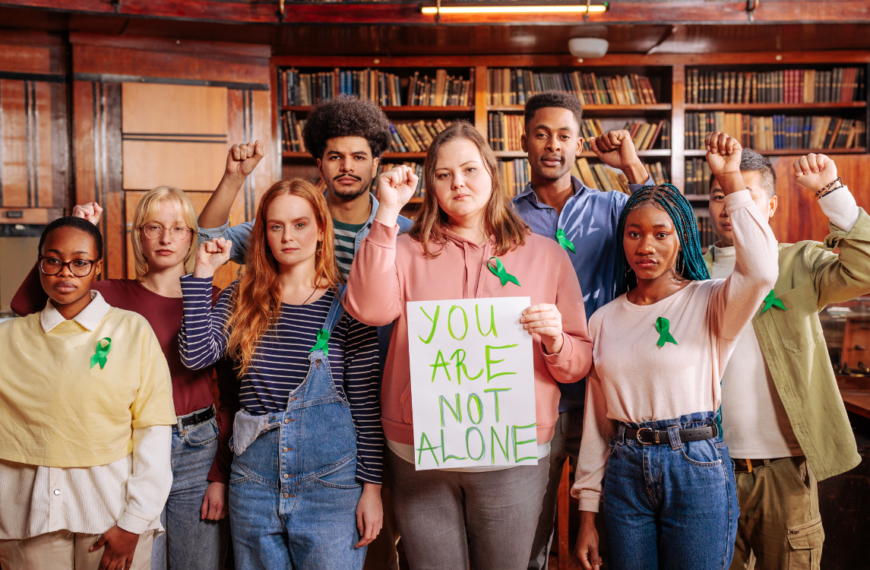Mental health recovery is a journey that involves various factors, including professional support, personal resilience, and, importantly, the role of family. For many individuals navigating mental health challenges, family support can be a powerful component in the recovery process. Families can provide a sense of belonging, emotional support, stability, and encouragement that significantly impacts an individual’s mental health journey. However, understanding how best to support a loved one dealing with mental health issues can be challenging. In this post, we will explore the vital role families play in mental health recovery, the dynamics of providing effective support, and practical ways families can foster a nurturing environment for healing.
1. Understanding the Impact of Family Support on Recovery
Research has consistently shown that individuals with strong family support tend to have better outcomes in their mental health recovery. This support can come in various forms—emotional, psychological, financial, and social. Families are often the first line of defense in recognizing the signs of mental health issues. They are typically the closest observers of their loved one’s behavior, emotions, and daily functioning. By noticing changes in mood, sleep patterns, appetite, or social interactions, families can help identify potential mental health issues early and encourage timely intervention.
Family members can also provide practical support by accompanying their loved ones to therapy sessions, assisting with medication management, and ensuring a stable, safe living environment. In many cases, the comfort of knowing they are not alone in their struggle can significantly improve an individual’s outlook and willingness to engage in treatment.
2. The Emotional Support Dimension
Emotional support is one of the most crucial aspects of the family’s role in mental health recovery. When someone is going through a mental health crisis, feelings of isolation, shame, or guilt can often be overwhelming. Family members who show empathy, understanding, and compassion can help reduce these feelings and provide a buffer against the negative emotions associated with mental health disorders.
Creating an open and non-judgmental space where the individual feels heard and validated is essential. It’s important for families to listen without immediately trying to “fix” the problem. Sometimes, simply being there and offering a listening ear can make a world of difference. Encouraging open communication and expressing unconditional love and support can help the individual feel safe and understood, promoting trust and a sense of belonging.
3. Promoting Healthy Boundaries and Independence
While emotional support is vital, it is equally important for families to establish healthy boundaries and promote independence. Over-involvement can sometimes lead to enabling behaviors, which may hinder an individual’s recovery journey. Families should aim to support their loved ones without becoming overly protective or controlling.
Encouraging independence means allowing the individual to take responsibility for their recovery process, such as managing their medications, attending therapy sessions, or making lifestyle changes that promote mental health. This approach fosters empowerment and builds resilience, enabling the individual to develop the skills and confidence needed to manage their mental health.
Families can support this by setting realistic expectations and celebrating small victories. Recognizing and praising efforts, no matter how small, can motivate continued progress and reinforce positive behaviors. At the same time, being aware of potential setbacks and handling them with patience and understanding is crucial to avoid discouragement.
4. Education and Awareness: A Family Responsibility
One of the most effective ways families can support mental health recovery is by becoming educated about mental health disorders. Understanding the nature of mental health conditions, the treatment options available, and the challenges involved in recovery can help family members offer informed and empathetic support. This knowledge can reduce misunderstandings and prevent the unintentional perpetuation of stigma or harmful myths about mental health.
Family psychoeducation programs are particularly beneficial, providing structured opportunities for families to learn about mental health issues and how to support their loved ones effectively. These programs often include information on communication strategies, problem-solving techniques, and coping mechanisms that can help both the individual and their family navigate the complexities of mental health recovery.
5. Encouraging Professional Help and Therapy
While family support is crucial, it should not replace professional mental health treatment. Encouraging loved ones to seek help from mental health professionals, such as therapists, counselors, psychiatrists, and support groups, is critical. Families can play a supportive role by helping to research appropriate treatment options, accompanying them to appointments, and being involved in treatment planning when appropriate.
Participating in family therapy sessions can also be beneficial. Family therapy can help address any dynamics that may be affecting the individual’s mental health and provide a platform for improving communication, understanding, and support within the family unit. It also allows family members to express their concerns, learn coping strategies, and receive guidance on how to best support their loved ones without compromising their well-being.
6. Building a Supportive Home Environment
Creating a stable, supportive home environment is fundamental to mental health recovery. This involves more than just providing a roof over one’s head; it means creating a space where the individual feels safe, respected, and free from judgment. A nurturing environment can reduce stress, provide routine, and help the individual focus on recovery.
Families can foster a positive atmosphere by engaging in healthy activities together, such as cooking balanced meals, exercising, practicing mindfulness, or participating in hobbies. Encouraging a healthy lifestyle can significantly impact mental health by promoting overall well-being. Moreover, reducing potential triggers, such as substance abuse or toxic relationships, is crucial in maintaining a healthy environment conducive to recovery.
7. Patience, Persistence, and Positivity
Recovery from mental health disorders is not a linear process; it often involves ups and downs, setbacks, and breakthroughs. Families must remain patient and persistent, offering consistent support and encouragement throughout the recovery journey. Being prepared for setbacks and understanding that progress can be slow is crucial for maintaining a positive outlook.
Practicing positivity doesn’t mean ignoring the challenges but rather focusing on hope and resilience. Encouraging a hopeful perspective and reminding loved ones of their strengths can help them stay motivated and focused on their recovery goals. Celebrating every step forward, no matter how small, can build confidence and foster a sense of accomplishment.
8. Taking Care of Yourself as a Caregiver
Supporting a loved one with mental health challenges can be emotionally and physically draining for family members. It is essential for caregivers to also prioritize their well-being. Engaging in self-care activities, seeking support from friends or support groups, and setting boundaries are critical to preventing caregiver burnout. Remember that taking care of yourself allows you to provide better care for your loved one.
Conclusion
The role of family in mental health recovery is multifaceted, encompassing emotional support, education, encouragement for professional help, and fostering a supportive home environment. By understanding their loved one’s needs, promoting independence, and remaining patient and hopeful, families can play a transformative role in the journey toward mental health recovery. With the right approach, families can create a foundation of support that empowers individuals to thrive and regain control of their lives. Together, we can break the stigma, promote healing, and support the journey to recovery with compassion, empathy, and hope.

















